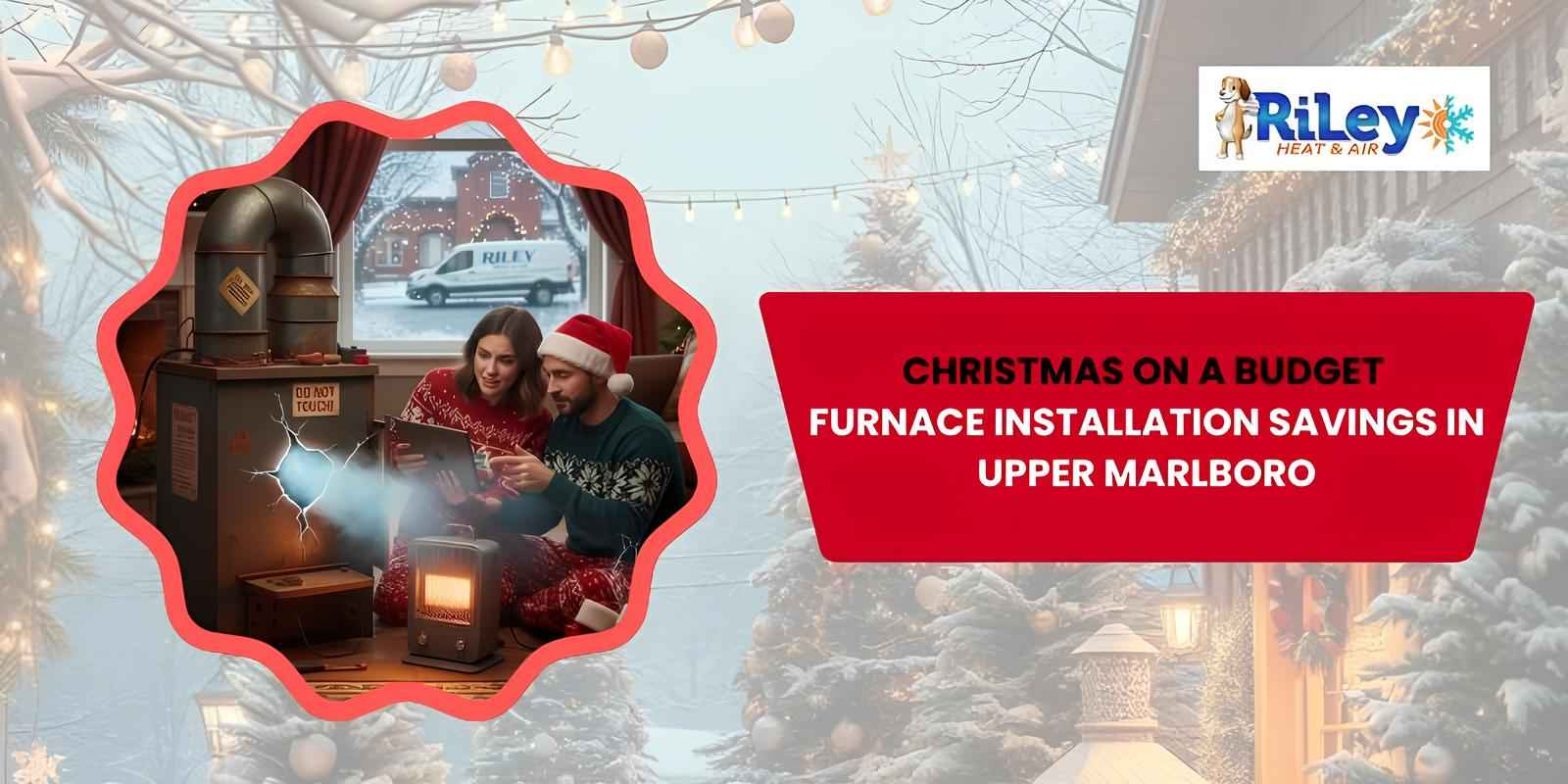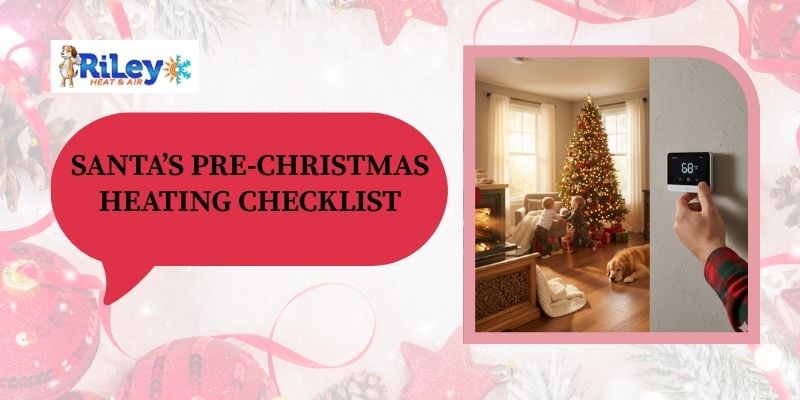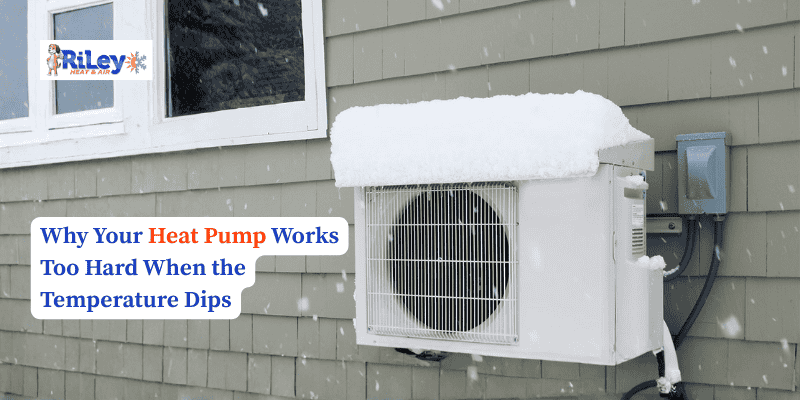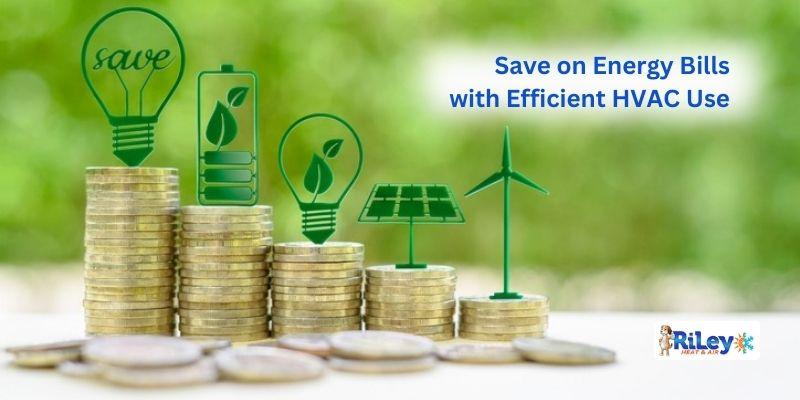
How to Save on Energy Bills with Efficient HVAC Use During Washington, DC Summers
Summers in Washington, DC, can be hot and humid, so efficiently using your HVAC system is crucial for maintaining comfort without breaking the bank. High energy bills are a common concern, but with the right strategies, you can keep your home cool while saving money. Here are some practical tips to help you save on energy bills with efficient HVAC use during the Washington, DC, summers.
Tips for Saving on Energy Bills with Efficient HVAC Use
1. Schedule Regular HVAC Maintenance
Professional Tune-Ups
One of the most effective ways to ensure your HVAC system runs efficiently is to schedule regular maintenance. A professional technician can perform a comprehensive inspection, clean the system, and identify any potential issues before they become major problems. Regular air conditioning service in Washington, DC, can help your system operate at peak efficiency, reducing energy consumption and extending the lifespan of your equipment.
Tip: Schedule a maintenance check at the beginning of the summer season to ensure your system is ready for the heat.
DIY Maintenance
In addition to professional maintenance, there are several tasks you can do yourself to keep your system running smoothly. Regularly replace or clean air filters, check the thermostat settings, and keep the outdoor unit free from debris. Clean filters improve airflow and reduce the strain on your system, leading to lower energy usage.
Tip: Check your air filters monthly and replace them every one to three months, depending on usage and the manufacturer's recommendations.
2. Optimize Your Thermostat Settings

Programmable Thermostats
A programmable thermostat allows you to set specific temperatures for different times of the day, ensuring that your HVAC system runs only when needed. For instance, you can set the thermostat to a higher temperature when you are away from home and lower it when you are back.
Tip: Set your thermostat to 78°F when you are at home and need cooling, and raise it by 7–10°F when you are away or sleeping to save up to 10% on cooling costs annually.
Smart Thermostats
Smart thermostats take energy savings a step further by automatically learning your habits and adjusting temperatures. They can be controlled remotely via smartphone apps, allowing you to make adjustments on the go.
Tip: Invest in a smart thermostat to maximize efficiency and convenience. Many models also provide energy usage reports, helping you identify ways to save even more.
3. Use Fans to Supplement Cooling
Ceiling Fans
Ceiling fans are an excellent way to enhance cooling without overworking your HVAC system. By circulating air, fans create a wind chill effect, making you feel cooler even at higher thermostat settings.
Tip: Use ceiling fans in occupied rooms and set them to rotate counterclockwise in the summer to push cool air down. This allows you to raise your thermostat by about 4°F without sacrificing comfort.
Portable Fans
Portable fans, such as box fans or oscillating fans, can also help improve airflow and make specific areas of your home more comfortable. They are instrumental in rooms that need to be served better by your central HVAC system.
Tip: Place portable fans near windows or doorways to facilitate cross-ventilation and enhance the cooling effect.
4. Improve Home Insulation
Seal Leaks
Air leaks around windows, doors, and ductwork can significantly reduce your HVAC system's efficiency by allowing cool air to escape and warm air to enter. Sealing these leaks helps maintain a consistent indoor temperature and reduces the workload on your HVAC system.
Tip: Use weatherstripping or caulk to seal gaps around windows and doors. Have a professional inspect your ductwork for leaks and seal them with mastic or foil tape.
Upgrade Insulation
Proper insulation in your walls, attic, and floors can significantly enhance your home's energy efficiency. Insulation helps keep cool air inside during the summer and warm air inside during the winter, reducing the demand on your HVAC system.
Tip: For better thermal performance, consider upgrading to high-efficiency insulation materials, such as spray or rigid foam. Insulation improvements can provide long-term energy savings and increased comfort.
5. Use Energy-Efficient Windows and Shades
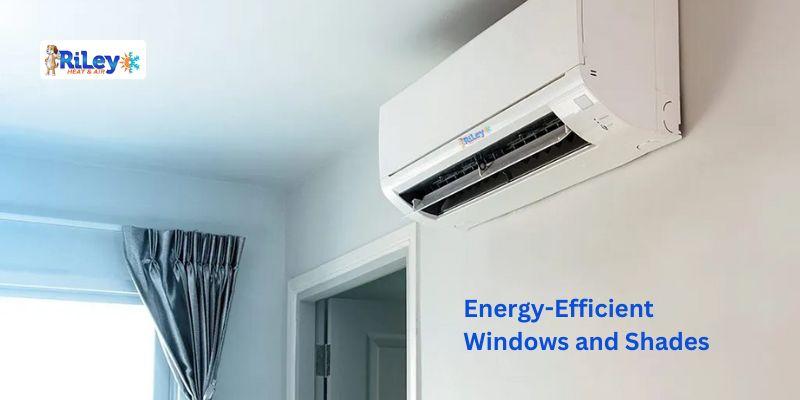
Energy-Efficient Windows
Installing energy-efficient windows can help reduce heat gain during the summer. These windows are designed with special coatings and materials that reflect more sunlight and reduce thermal transfer.
Tip: Look for windows with a low U-factor and a low Solar Heat Gain Coefficient (SHGC) for optimal energy efficiency.
Window Treatments
Window treatments, such as blinds, shades, and curtains, can also significantly reduce heat gain. Closing them during the hottest parts of the day can block out sunlight and keep your home cooler.
Tip: Use reflective or light-colored window treatments to reflect more sunlight. Blackout curtains or shades can provide maximum heat reduction.
6. Reduce Heat Sources
Minimize the Use of Heat-Generating Appliances
Appliances such as ovens, stoves, and dryers generate much heat, making your HVAC system work harder to maintain a cool temperature. Try to minimize their use during the hottest parts of the day.
Tip: Cook meals in the early morning or late evening, use a microwave or slow cooker instead of the oven, and hang clothes to dry whenever possible.
Use Energy-Efficient Lighting
Traditional incandescent bulbs generate a significant amount of heat. Switching to energy-efficient lighting, such as LED bulbs, can reduce the heat load in your home and lower energy consumption.
Tip: Replace incandescent bulbs with LED bulbs, which use less energy and emit less heat. LEDs also have a longer lifespan, providing additional savings over time.
7. Upgrade to an Energy-Efficient HVAC System
High-Efficiency Units
If your HVAC system is over 10–15 years old, it may be time to consider an upgrade. Modern HVAC systems are significantly more energy-efficient and can substantially save energy bills.
Tip: Look for units with a high Seasonal Energy Efficiency Ratio (SEER) rating for air conditioners and a high Annual Fuel Utilization Efficiency (AFUE) rating for furnaces. Energy Star-rated units meet strict energy efficiency guidelines and can provide additional savings.
Variable Speed Systems
Variable-speed HVAC systems can adjust their output to match the cooling needs of your home more precisely. This not only improves comfort but also reduces energy consumption.
Tip: Consider upgrading to a variable-speed system for better efficiency and comfort control. These systems are particularly effective in reducing energy usage during part-load conditions.
Wrapping Up
By implementing regular maintenance, optimizing thermostat settings, improving insulation, using fans, and considering energy-efficient upgrades, you can significantly reduce your energy bills during Washington, DC, summers. These strategies ensure a comfortable home environment while keeping costs in check, making efficient HVAC use practical and economical.
Tags :


